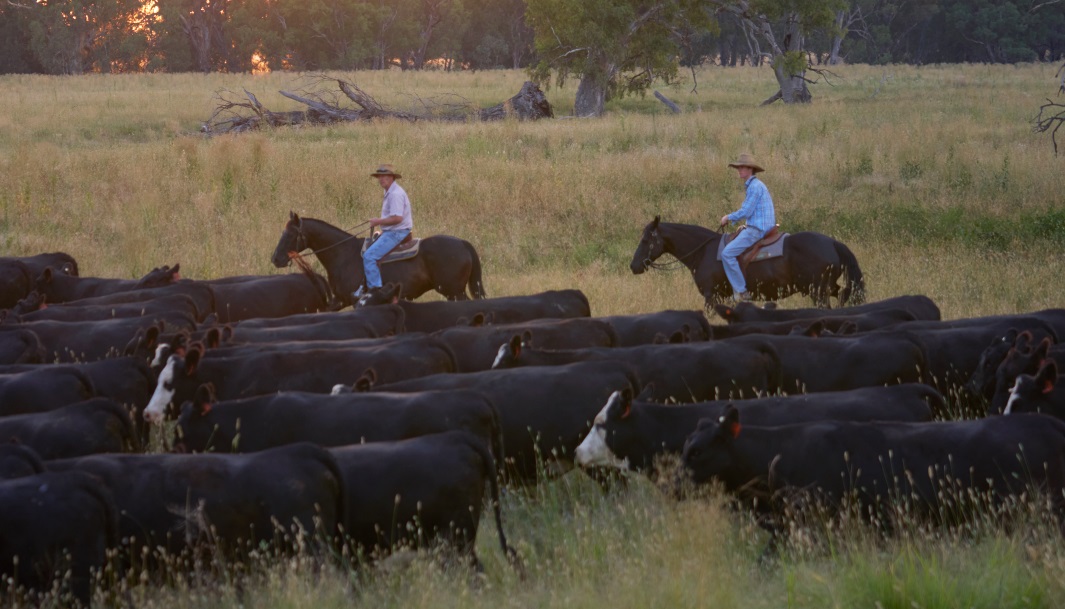
THE “beef is bad for the environment” drum has been beating loudly again in recent months, with media outlets and governments making big claims about the industry’s footprint.
New Zealand, The Netherlands and Ireland have all legislated agricultural emissions in recent months – a reduction in livestock numbers could be on the cards in all three countries. Many media articles also appear to be supporting a reduction in livestock, with “beef is bad” messages appearing to be accepted as fact.
One recent The Guardian article claimed that avoiding meat and dairy was the single biggest way for readers to reduce their environmental impact, while another in The Washington Post said beef was up there with the biggest emitters in the world.
“If cattle were a country, they would be the third-largest emitter, behind only China and the United States,” the Washington Post article said, citing the World Resources Institute as its source.
The story advocated for consumers to halve their beef intake and replace it with pork.

But the comparison to the US and China’s emissions omits some significant details about the way livestock emissions work.
Many scientists, including University of Oxford professor Myles Allen and University of California Davis professor Frank Mitloehner, have long argued that is unfair to put ruminant livestock methane emissions on the same playing field as emissions from fossil fuels.
Put simply, both scientists point out that the ability of methane from cattle to break down in the atmosphere and be captured by trees and soil on the land on which it is grazed means it should be accounted differently to fossil fuel emissions.
Professor Allen recently told an Irish Government inquiry the focus has gone away from contributions to warming.
“We’re saddled with the misperception of conflict because of the incorrect way we measure the impact of farming on climate,” he said.
“This is a problem we don’t need to have and if we measured the impact of farming on global temperature rather than carbon footprint, I think farmers would be reassured by the results.”
It must be said the Washington Post conceded that the beef industry had its positives.
“(Cattle) can turn grass into high-quality human food; they are often the best way to get food out of land unsuitable for crops; when their grazing is well-managed, they can improve soil health and even sequester some carbon,” it said.
“But they can’t sequester enough carbon to make up for what their digestive systems emit and the greenhouse gas cost of the deforestation that is driven primarily by that increasing demand for beef.”
These claims are disputed by the industry. Meat & Livestock Australia says a reduction in numbers will not be needed by the industry to reach the carbon neutral by 2030 target, and Prof Mitloehner has said multiple times that emissions from cattle can be reduced without destocking.
Recently, a conference in Brisbane heard a property in Central Queensland is sequestering 50kg of carbon per 1kg of beef – with methane emissions accounted for in the calculation. More details are expected to come on that project, which is currently being reviewed by the independent regulator.
The beef industry has openly acknowledged that concerns exist around livestock emissions, and all sources quoted in this article have said emissions are a problem that needs to be dealt with, and can be dealt with.
Despite the genuine work underway to reduce its footprint, some media show little interest in seeking out the full story, and find it easy to just accept the “beef is bad for the environment” message without challenge or fact-checking.
Putting livestock methane into rational perspective is a little more difficult, but engaging more with the science community will lead to a better outcome for everyone.
AgCarbon Central has been featuring regular articles from industry stakeholders in a series called the carbon forum. Today we have decided to do our own. See previous articles below.
- Dr Richard Eckard – why livestock producers should care about carbon footprint
